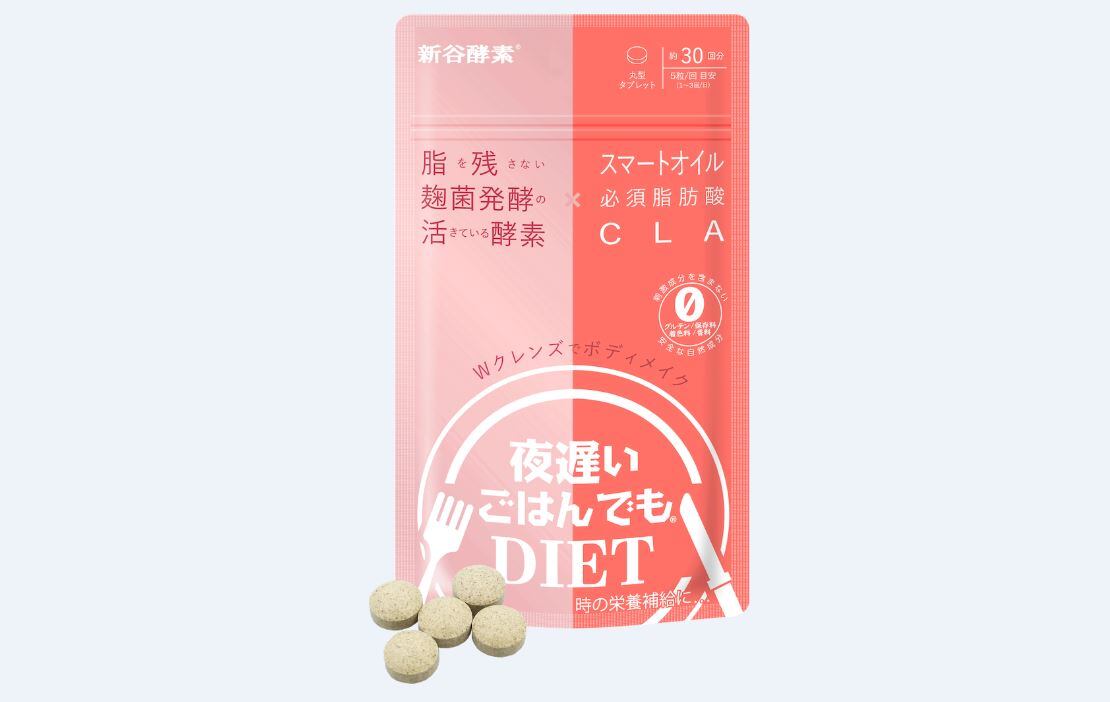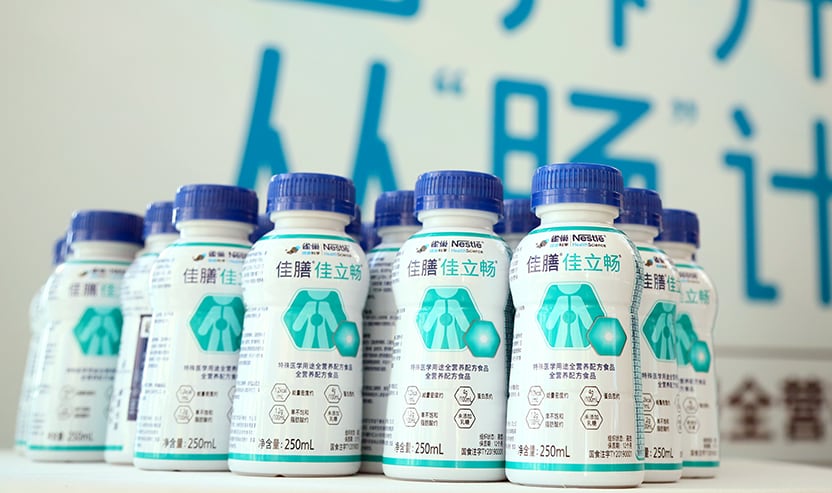The new supplement (English name: Daily Digestion Enzymes W Kinkatsu Body Make) sold under its Shinya Koso enzyme series was launched locally in October 2020 to aid digestion.
The tablet supplement contains 120mg of conjugated linoleic acid, 50mg of Bifidobacterium breve B-3 obtained from Morinaga Milk Industry, and 450mg of its enzymes.
Kazu Takeshima, general manager at George & Oliver said the new supplement was targeted at people above 35 years, “(We target) people whose digestion has declined after 35 years old, because it is hard to make enzymes in our body (past that age).”
He told NutraIngredients-Asia the Body Make supplement was also suitable for people who often eat or drink in excess, resulting in a lack of enzymes.
Takeshima said the ingredients worked together to regulate intestinal movement, keep metabolism up and reduce body fat.
“Enzymes can help their metabolism, and good metabolism is very important because it helps prevent the body from gaining weight easily.”
The Shinya Koso line is known for its enzyme-based supplements, with about 10 products under this brand. It has sold more than 18 million boxes of Daily Digestion Enzyme products over the past nine years.
In Japan, the Body Make supplement can be found in drugstores, supermarkets, variety shops as well as e-commerce.
In Singapore, the firm has soft launched Daily Digestion Enzyme products in April this year with an official launch in August.
According to Teeni Enterprise, the brand’s distributor in Singapore, key account manager Maverick Leung said the Daily Digestion Enzyme products are currently available at pharmacy chain Guardian, Welcia as well as e-commerce.
He added there were plans to bring Body Make into Welci this month and Guardian next year.
The firm is also planning to enter the Vietnam market for the first time through e-commerce next month.
Currently, about 40% of the brand sales are domestic, 35 to 40% China, and the rest Taiwan, Hong Kong, Singapore, Malaysia, US, Canada, Australia and New Zealand.
Enzyme power
Enzymes are essential for healthy digestion and work with stomach acid and bile to break down food into molecules for bodily functions.
According to Dr Hiromi Shinya, developer of the Shinya Koso series and former medical professional, “From my years of experience, I am convinced that it is necessary to maintain the quantity of enzyme inside the body in order to stay healthy. I think that it is important to supply living enzymes for maintaining healthy life.”
While active enzymes can be obtained from fermented foods, current lifestyle consisting of processed foods, tobacco and alcohol decreases enzymes in the body, as we age.
While supplements can help replenish the enzyme supply in the body, most enzyme supplements do not contain active enzymes, according to Takeshima.
“The enzyme category is popular in Japan. However, there are few products that contain real active enzymes like Shinya enzymes.”
Leung added that Singaporean consumers were not as knowledgeable about enzyme supplements.
“We have been focusing on our social media channels and driving awareness of the products. For instance, we have an AMA (ask me anything) section which encourages consumers to send in their questions, and we educate them.”
Many enzyme supplements sold in Japan were in either a liquid or paste type, which requires a heat pasteurisation process or water contact.
But Takeshima explained that enzyme activities start to decrease at temperatures more than 48℃, and is broken down at 70℃. Enzymes also become inactive after 72 hours when mixed with water.
It is essential for the enzymes in the supplements to be active in order to be beneficial.
Shinya Koso’s enzymes are manufactured using its aspergillus oryzae biofermentation method which does not involve heat treatment, ensuring the enzymes are kept live.
The enzymes from the Shinya Koso series are made from natural ingredients such as black beans, rice germ, soy germ, wheat koji, sesame, and fruits such as pineapple, papaya, and kiwi.




